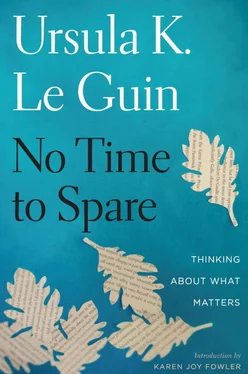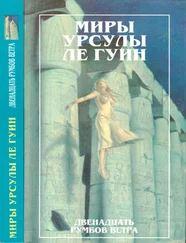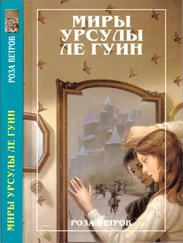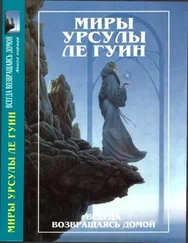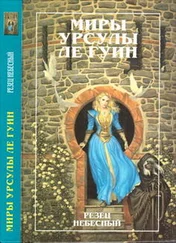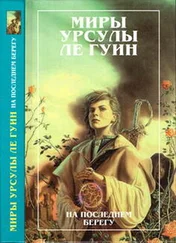Three cheers and Amen to that.
But I want to add this note: To me, the keystone of the phrase “the great American novel” is not the word American but the word great.
Greatness, in the sense of outstanding or unique accomplishment, is a cryptogendered word. In ordinary usage and common understanding, “a great American” means a great American man, “a great writer” means a great male writer. To regender the word, it must modify a feminine noun (“a great American woman,” “a great woman writer”). To degender it, it must be used in a locution such as “great Americans/writers, both men and women…” Greatness in the abstract, in general, is still thought of as the province of men.
The writer who sets out to write the great American novel must see himself as a free citizen of that province, competing on equal ground with other writers, living and dead, for a glittering prize, a unique honor. His career is a contest, a battle, with victory over other men as its goal. (He is unlikely to think much about women as competitors.) Only in this view of the writer as a fully privileged male, a warrior, literature as a tournament, greatness as the defeat of others, can the idea of “the” great American novel exist.
That’s a good deal to swallow, these days, for most writers over fourteen. I’ll bet the whole notion of “the great American novel” is nothing like as common and meaningful an idea among authors as it is among readers, fans, PR people, reviewers, those who don’t read but know authors by name as celebrities, and people who need something to blog about.
Now this may get me told off by women who value competitiveness and feel the problem with women is that they think they shouldn’t or can’t compete, but I’ll say it all the same. It makes perfect sense to me that I’ve never heard a woman writer say she intended, or wanted, to write the great American novel.
Tell you true, I’ve never heard a woman writer say the phrase “the great American novel” without a sort of snort.
Whatever the virtues of competitiveness, women are still deeply trained by society to be cautious about laying claim to greatness greater than the greatness of men. As you know, Jim, a woman who competes successfully with men in a field men consider theirs by right risks being punished for it. Literature is a field a great many men consider theirs by right. Virginia Woolf committed successful competition in that field. She barely escaped the first and most effective punishment—omission from the literary canon after her death. Yet eighty or ninety years later charges of snobbery and invalidism are still used to discredit and diminish her. Marcel Proust’s limitations and his neuroticism were at least as notable as hers. But that Proust needed not only a room of his own but a cork-lined one is taken as proof he was a genius. That Woolf heard the birds singing in Greek shows only that she was a sick woman.
So as long as men need to “be reflected at twice their natural size,” a woman writer knows that open competition with them is dangerous. Even if she wants to write the, or a, great American novel, she’s unlikely to announce (as male writers do from time to time) that she plans to or has written it. And if she feels she deserves a Pulitzer or Booker or Nobel, or anyhow wouldn’t mind having one, she knows most literary awards are weighted so heavily in favor of men that the social efforts involved in most major awards, the networking and careful self-presentation, are a great expense for an unlikely return.
But risk avoidance isn’t all there is to it. Because competition for primacy, for literary supremacy, doesn’t seem as glamorously possible for women as it does for men, the whole idea of singular greatness—of there being one great anything—may not have the hold on a woman’s imagination that it has on a man’s. The knights in the lists have to believe the prize can be won and is worth winning. Those relegated to the preliminary jousts and the sidelines can see more clearly how arbitrary the judgment of championship is, and can question the value of the glittering prize.
Who wants “The” Great American Novel, anyhow? PR people. People who believe that bestsellers are better than other books because they sell better than other books and that the prizewinning book is the best book because it won the prize. Tired teachers, timid teachers, lazy students who’d like one text to read instead of the many, many great and greatly complex books that make up literature.
Art is not a horse race. Literature is not the Olympics. The hell with The Great American Novel. We have all the great novels we need right now—and right now some man or woman is writing a new one we won’t know we needed till we read it.
The Narrative Gift as a Moral Conundrum
May 2012
THE NARRATIVE GIFT, is that what to call it? The storyteller’s knack, as developed in writing.
Storytelling is clearly a gift, a talent, a specific ability. Some people just don’t have it—they rush or drone, jumble the order of events, skip essentials, dwell on inessentials, and then muff the climax. Don’t we all have a relative who we pray won’t launch into a joke or a bit of family history because the history will bore us and the joke will bomb? But we may also have a relative who can take the stupidest, nothingest little event and make it into what copywriters call a gut-wrenchingly brilliant thriller and a laugh riot. Or, as Cousin Verne says, that Cousin Myra, she sure knows how to tell a story.
When Cousin Myra goes literary, you have a force to contend with.
But how important is that knack to writing fiction? How much of it, or what kind of it, is essential to excellence? And what is the connection of the narrative gift with literary quality?
I’m talking about story, not about plot. E. M. Forster had a low opinion of story. He said story is “The queen died and then the king died,” while plot is “The queen died and then the king died of grief.” To him, story is just “this happened and then this happened and then this happened,” a succession without connection; plot introduces connection or causality, therefore shape and form. Plot makes sense of story. I honor E. M. Forster, but I don’t believe this. Children often tell “this happened and then this happened,” and so do people naively recounting their dream or a movie, but in literature, story in Forster’s sense doesn’t exist. Not even the silliest “action” potboiler is a mere succession of unconnected events.
I have a high opinion of story. I see it as the essential trajectory of narrative: a coherent, onward movement, taking the reader from Here to There. Plot, to me, is variation or complication of the movement of story.
Story goes. Plot elaborates the going.
Plot hesitates, pauses, doubles back (Proust), forecasts, leaps, doubling or tripling simultaneous trajectories (Dickens), diagrams a geometry onto the story line (Hardy), makes the story Ariadne’s string leading through a labyrinth (mysteries), turns the story into a cobweb, a waltz, a vast symphonic structure in time (the novel in general)…
There are supposed to be only so many plots (three, five, ten) in all fiction. I don’t believe that either. Plot is manifold, inexhaustibly ingenious, endless in connections and causalities and complications. But through all the twists and turns and red herrings and illusions of plot, the trajectory of story is there, going forward. If it isn’t going forward, the fiction founders.
I suppose plot without story is possible—perhaps one of those incredibly complex cerebral spy thrillers where you need a GPS to get through the book at all. And story without plot occurs occasionally in literary fiction (Woolf’s “The Mark on the Wall,” perhaps)—oftener in literary nonfiction. A biography, for instance, can’t really have a plot, unless the subject obligingly provided one by living it. But the great biographers make you feel that the story of the life they’ve told has an aesthetic completeness equal to that of plotted fiction. Lesser biographers and memoirists often invent a plot to foist onto their factual story—they don’t trust it to work by itself, so they make it untrustworthy.
Читать дальше
